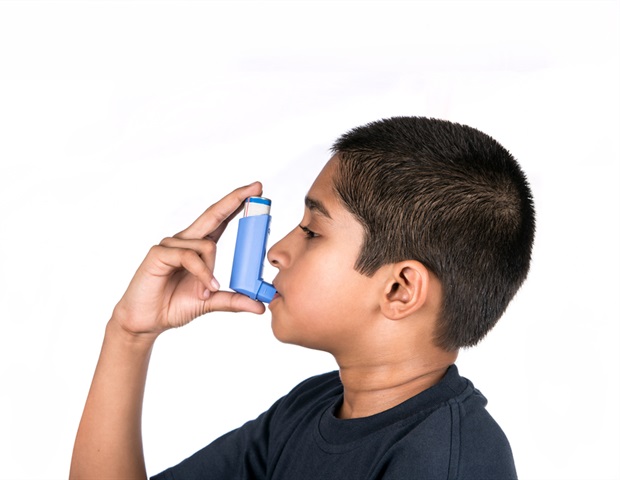
The use of antibiotics in the first year of life has been found to be a risk factor for the development of childhood asthma. What is not known is how to protect children from the long-term effects of infant antibiotic use. Researchers at Monroe Carell Jr.
Children's Hospital at Vanderbilt are seeking to determine the age when infants are most susceptible to the risk of developing childhood asthma once exposed to antibiotics and the pathways through which infant antibiotic use can increase the risk childhood asthma onset. "There are currently no strategies to prevent asthma, the most common chronic lung disease in children," said Christian Rosas-Salazar, MD, MPH, assistant professor of Pediatrics, Allergy, Immunology, Pulmonary Medicine at Monroe Carell. "Understanding the mechanisms that lead to asthma in children who receive antibiotics in early life can help us develop interventions to prevent this condition.
"By examining how antibiotics can disrupt an infant's microbiome and identifying a critical window of opportunity to intervene, the ultimate goal of this project is to inform the design of microbiome-based therapeutics, such as probiotics and/or bacterial products that can help deliver antibiotics safely during early life and reduce the burden of childhood asthma." Rosas-Salazar received $4.1 million from the National Heart, Lung and Blood Institute to conduct a five-year study, "Effect of infant antibiotics on the development of early-life airway and gut microbiome and risk of childhood asthma," where his team will use available data and biospecimens collected from several birth cohorts from across the country that are part of the Environmental Influences on Child Health Outcomes (ECHO) Program of the National Institutes of Health.
Results from previous studies indicate that the association of antibiotic exposure early in childhood and the risk of developing asthma is likely due to changes in the human microbiome, but the techniques utilized couldn't accurately identify relevant bacterial species or functions. Rosas-Salazar said that is critical in designing interventions to prevent long-term detrimental effects of infant antibiotic use. Our objective is to address a critical and unmet needThe findings could be used to develop microbiome-based interventions to prevent childhood asthma in children needing antibiotics in early life.
" Christian Rosas-Salazar, MD, MPH, assistant professor of Pediatrics, Allergy, Immunology, Pulmonary Medicine at Monroe Carell Vanderbilt University Medical Center.














